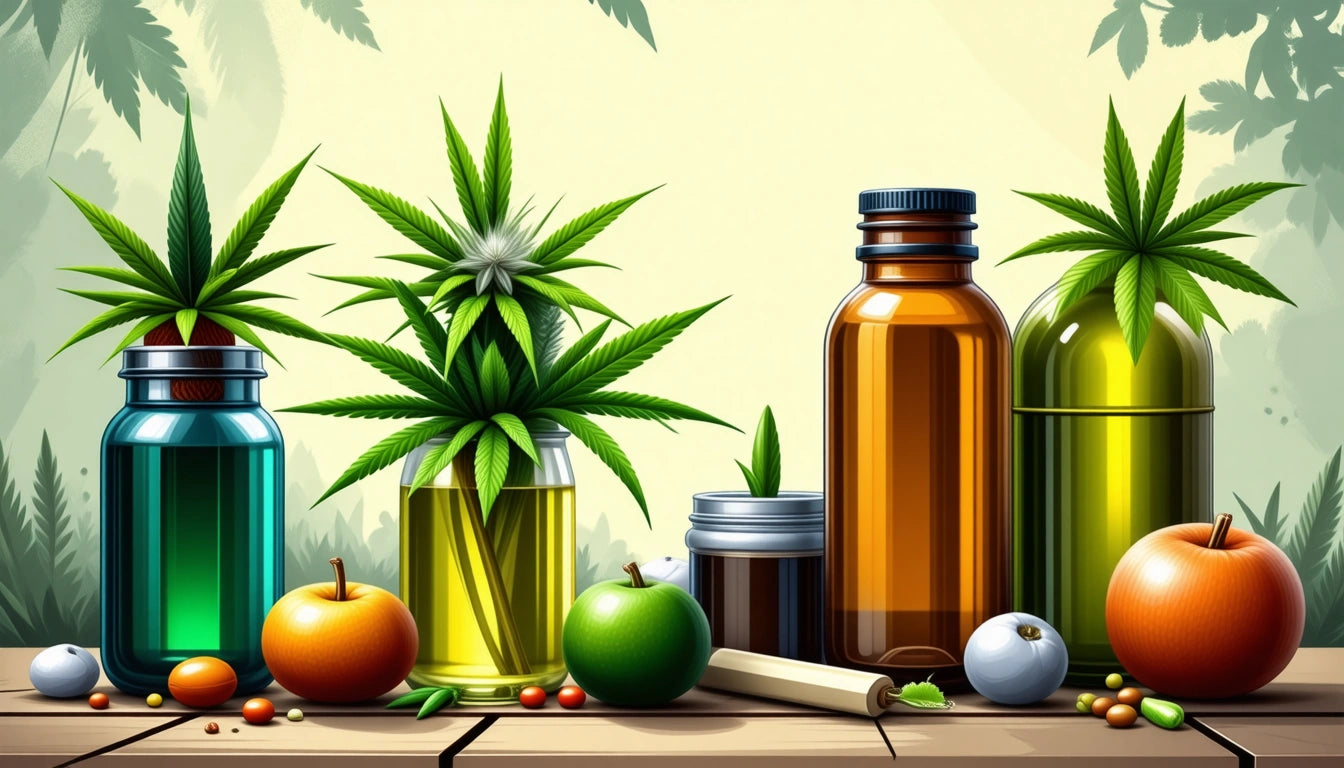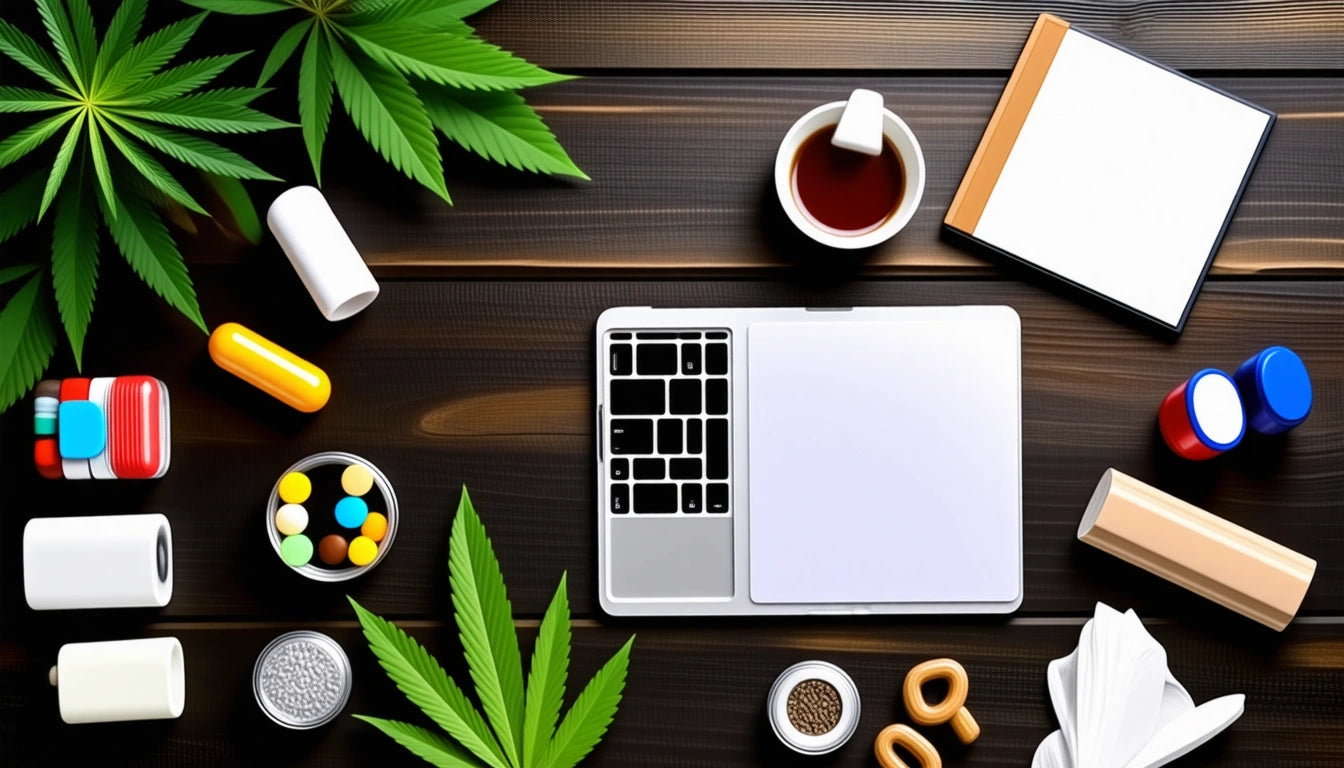Table of Contents
Understanding the Effects of Cannabis: Why Getting High Feels Different for Everyone
Cannabis affects each person uniquely, leading to widely varying experiences when getting high. While one person might feel creative and energized, another might experience relaxation or even anxiety from the same product. Understanding these differences can help consumers navigate their cannabis journey more effectively and safely.
Individual Factors That Influence Your High
Several biological factors determine how cannabis affects you:
- Endocannabinoid System: Each person has a unique endocannabinoid system with different receptor densities and distributions.
- Metabolism: Your metabolic rate affects how quickly THC is processed in your body.
- Body Composition: THC is fat-soluble, so body fat percentage can influence how compounds are stored and released.
- Genetics: Some genetic variations affect how your body processes cannabinoids.
These differences explain why you might get high easily while your friend requires a higher dose for similar effects. They also contribute to why some people experience unusual responses, such as feeling cold when high or experiencing heightened sensations.
Tolerance and Adaptation: Why Your High Changes Over Time
Many users wonder, "Why am I not getting high anymore?" or "Why can't I get high?" The answer often lies in tolerance development.
When you use cannabis regularly, your body adapts by reducing cannabinoid receptor sensitivity. This adaptation means you need more cannabis to achieve the same effects, eventually reaching a point where you might feel like you can't get high at all.
Some users report they "can only get high once in the day" or notice their "high goes away so quickly." This phenomenon, called acute tolerance, can develop even within a single session. Taking a tolerance break allows your endocannabinoid system to reset, often restoring the intensity of effects.
How Consumption Methods Affect Your Experience
The way you consume cannabis significantly impacts your experience:
- Inhalation (smoking/vaping): Provides rapid onset but shorter duration
- Edibles: Slower onset but longer-lasting effects
- Tinctures: Moderate onset time with medium duration
- Topicals: Localized effects with minimal psychoactivity
If you're wondering why you don't get high from certain methods, it could be related to improper inhalation technique, low-quality products, or choosing products with inappropriate cannabinoid profiles for your body chemistry.
Understanding Unexpected Physical Responses
Cannabis can trigger surprising physical reactions that vary widely between individuals. Some people report feeling fidgety when high, while others experience temperature sensitivity or changes in physical arousal.
The question "why do I get horny when high" is common and relates to how THC affects blood flow and sensory perception. Cannabis can enhance tactile sensations and lower inhibitions in some users, leading to increased arousal. Conversely, others might experience the opposite effect.
These variations highlight the importance of proper storage and safety measures. As consumer safety guidelines emphasize, all cannabis products should be stored in appropriate child-resistant packaging to prevent accidental consumption, especially given the unpredictable effects these substances can have on different individuals.
The Importance of Mindset and Setting
Your mental state and environment dramatically influence your cannabis experience:
- Mindset: Anxiety, expectations, and mood before consumption
- Setting: Your physical environment and social context
- Purpose: Recreational use versus medicinal intent
If you're wondering "why do people get high," the reasons vary widely from seeking relaxation to enhancing creativity or managing symptoms. Your intention often shapes your experience.
For those asking "why am I still high" long after consumption, the answer might lie in how cannabis metabolites linger in your system, especially after edible consumption or if you have a slow metabolism.
The Science Behind Cannabis Effects and Individual Variations
Understanding why cannabis affects people differently requires examining its complex interactions with our bodies. The term "getting high" originated from the elevation in mood and perception that cannabis typically produces, but these effects manifest uniquely in each person.
For those experiencing diminished effects and wondering "why can't I get high anymore," several approaches may help:
- Taking a tolerance break (typically 1-4 weeks)
- Trying different consumption methods
- Exploring different strains with varied terpene profiles
- Considering your overall health and medication interactions
If you're new to cannabis and get high very easily, this typically reflects a lack of tolerance. Starting with low doses and gradually increasing is recommended for newcomers to avoid overwhelming experiences.
For those experiencing unexpected or unusual responses to cannabis, consulting with a healthcare provider familiar with cannabis can provide personalized insights based on your unique physiology and health history.
The science of cannabis continues to evolve, offering new insights into why our experiences differ so dramatically and how we can better customize consumption for desired effects.











Leave a comment
All comments are moderated before being published.
This site is protected by hCaptcha and the hCaptcha Privacy Policy and Terms of Service apply.